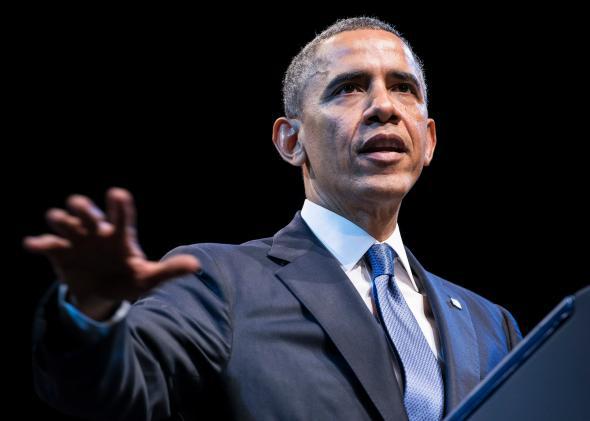I went down to THEARC, way down near D.C.’s southern tip where the national political class rarely ventures, this morning to watch President Obama deliver a speech at a Center for American Progress event on inequality and the economy. And he offered what, had it been delivered in 2007, would have been the greatest speech of the then-nascent presidential campaign.
By which I mean it was a really and truly solid speech speaking to the generation-long rise in inequality since the oil shocks of the 1970s. America decided deliberately to allow for more income inequality on the theory (endorsed by John Rawls and not just Ronald Reagan) that more inequality is fine if more inequality is the way to produce more growth for everyone. Except we didn’t get the more growth for everyone. We got more growth for 10–20 percent of the population and a lot more growth for a narrow elite. That’s true in 2013, and it was true in 2007, and it demanded a solution.
What’s also true is that in 2013 we have mass unemployment and shall we say some unresolved questions about the role of the financial sector in the American economy.
And the speech didn’t really talk about either of those things. The Washington, D.C., metropolitan area has become an island of prosperity in an ailing country. But D.C. itself has an 8.9 percent unemployment rate even as it sits at the center of a metro-area unemployment rate of just 5.4 percent. For people who haven’t gone to college—the kind of people who live in the neighborhood where Obama was speaking—the unemployment rate is 20 percent. That’s a disaster. And while Obama talked about plenty of things that could help those unemployed families—subsidized health care, better schools for their kids—he didn’t really talk about anything that would get them jobs. The biggest applause line of the speech was about raising the minimum wage, which is great, but also doesn’t help you very much if your current wage is $0. Delivering a stemwinder about the need for Janet Yellen to raise the growth rate of nominal income in the United States might not have been very smart, but yadda-yaddaing past mass unemployment is odd.
The people suffering the most in this country aren’t the people’s whose wages are stagnating, it’s the people who don’t have any wages at all. And the biggest thing stopping the people whose wages are stagnating from demanding a raise is that there are all these unemployed people out there who’d love to have their crappy low-paying jobs.
